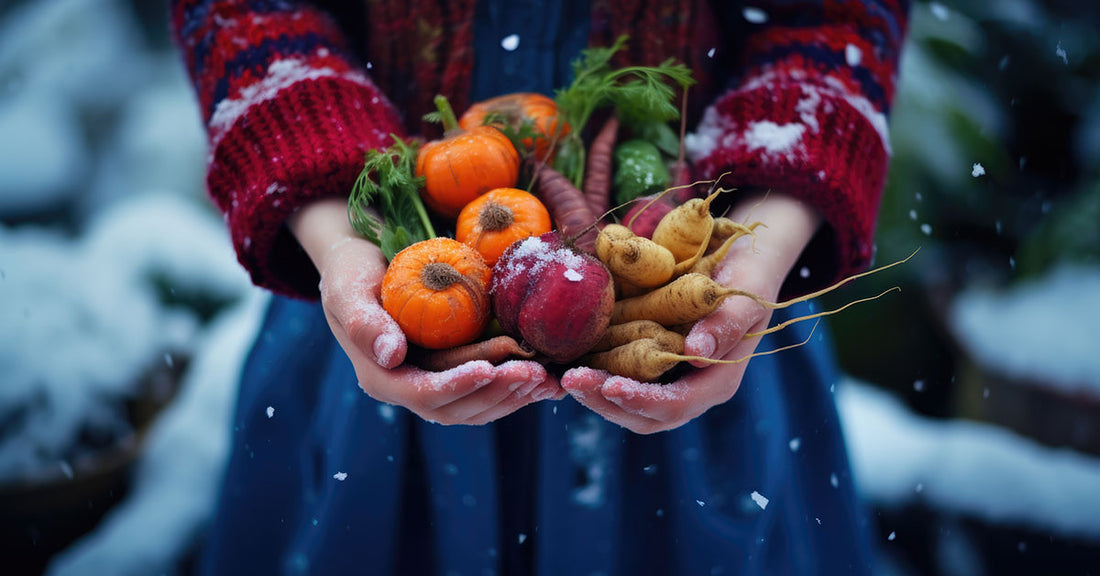Embracing Nutrition When the Mercury Drops
As the chill of winter wraps its icy fingers around us, it's easy to let our healthy eating habits hibernate. The abundance of summer's fresh fruits and vegetables seems a distant memory, and the lure of comfort foods becomes stronger. However, winter doesn't have to be a nutritional wasteland. In fact, it can be an excellent time to explore different aspects of healthy eating, particularly when it comes to fruits and vegetables.
The Importance of Fruits and Vegetables in Winter
The colder months often bring with them an increased susceptibility to colds and flu. This is where fruits and vegetables play a vital role. They are packed with vitamins, minerals, and antioxidants that help strengthen the immune system. For instance, citrus fruits are high in Vitamin C, a well-known immune booster. Dark, leafy greens are rich in Vitamin A, Vitamin C, and other antioxidants that are crucial for health maintenance.
Seasonal Selections: Winter’s Bounty
Believe it or not, winter has its own bounty of fruits and vegetables. Root vegetables like carrots, turnips, and beetroots thrive in colder weather and are packed with nutrients. Winter squash, sweet potatoes, and pumpkins are not only delicious but are also high in vitamins A and C. Fruits like pomegranates, kiwis, and citrus fruits are at their peak during winter and can add a burst of flavor and nutrients to your diet.
Storing and Preparing Winter Produce
To make the most out of winter produce, proper storage and preparation are key. Root vegetables can be stored in a cool, dark place for several weeks. Squash can be roasted, pureed, or added to soups and stews. Citrus fruits are great as snacks, in salads, or squeezed as fresh juice. Experimenting with cooking methods like roasting, stewing, and baking can also unlock new flavors and textures.
Boosting Immunity with Soups and Stews
One of the best ways to enjoy winter vegetables is in soups and stews. These dishes are not only comforting on a cold day but also an excellent way to pack a variety of vegetables into one meal. Adding spices such as garlic, ginger, and turmeric can further enhance the nutritional value and give your immune system an extra boost.
Frozen Fruits and Vegetables: A Viable Option
When fresh produce is scarce, don't forget about frozen fruits and vegetables. Freezing preserves most of the nutrients, making frozen produce almost as good as fresh. They can be a convenient and affordable option, especially for out-of-season items.
Creative Ways to Include Fruits and Vegetables
- Smoothies: Combine frozen fruits with some yogurt or milk for a nutritious breakfast or snack.
- Roasted Vegetables: Roasting brings out the natural sweetness in vegetables. Try a mix of root vegetables for a hearty side dish.
- Fruit Desserts: Baked apples or poached pears can satisfy sweet cravings healthily.
- Warm Salads: Warm, grilled vegetables can turn a summer salad into a winter treat.
The Role of Supplements
In some cases, supplements may be necessary to meet your vitamin and mineral needs. However, they should not be a replacement for real food. It's best to consult with a healthcare provider before starting any supplement regimen.
Maintaining Variety
It’s important to maintain variety in your diet. Each fruit and vegetable offers different nutrients, so consuming a wide variety is crucial for getting all the benefits. Try new vegetables and fruits when you can, and look for different ways to prepare them.
Children and Vegetables
Getting children to eat vegetables can be particularly challenging in winter. Make it fun by involving them in cooking, or try making vegetable-based sauces and soups more appealing by blending them to a smooth consistency.
The Mental Health Aspect
Fruits and vegetables aren't just good for the body; they're also beneficial for mental health. Nutrient-rich diets have been linked to better mood and mental well-being. With shorter, darker days affecting mood for many, a nutritious diet can play a significant role in maintaining mental health through the winter.
Supporting Local Farmers
Where possible, support local farmers by buying seasonal produce. This not only helps the local economy but also ensures you are getting fresh, nutrient-rich produce.
Conclusion
While winter may seem limiting in terms of fresh produce, it actually offers a unique opportunity to explore a different range of fruits and vegetables. By embracing the season's bounty, getting creative in the kitchen, and remembering the importance of these foods for our immune and mental health, we can enjoy a nutritious and delicious winter season. Remember, the cold weather doesn't mean your healthy eating habits have to freeze!
About Substance Health
At Substance Health, we are dedicated to providing you with the knowledge and resources to maintain a healthy lifestyle all year round. For more tips on healthy living, visit our website

